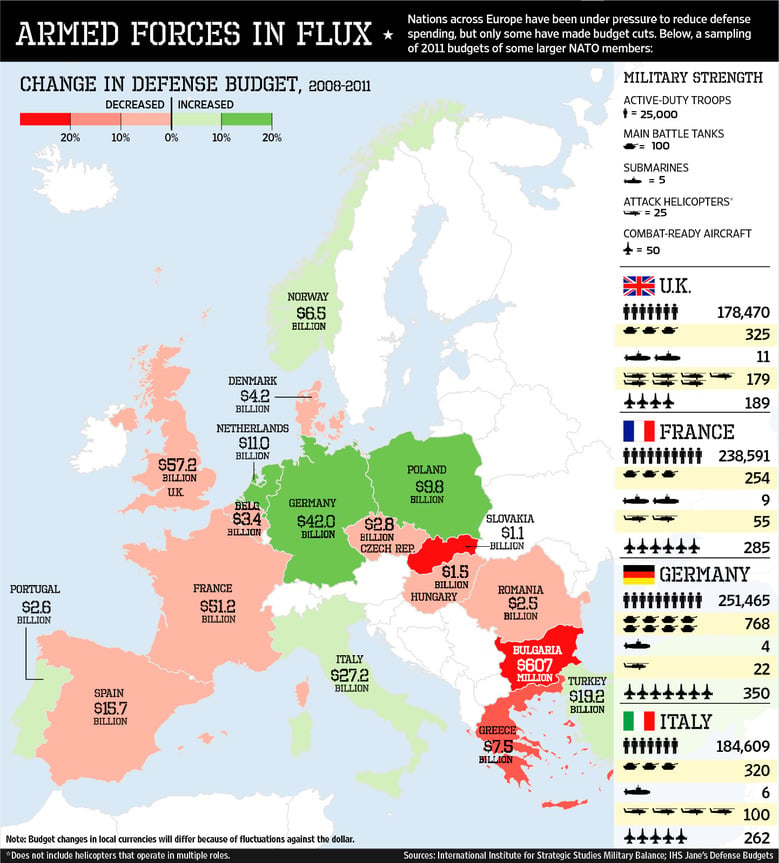
A vote to leave the EU on 23 June would have grave implications for the security of the UK, Europe, and NATO.
On June 23 the British will vote on whether to remain in the European Union. The debate has been heated, with both sides exchanging insults, dodgy economic forecasts and unsupported predictions about the future. The British Conservative Party may have been irreparably damaged by the experience. David Cameron may find his position as Prime Minister unsustainable even if the British vote to remain in the EU.
But in all the furor and anguish, surprisingly little has been said about the security implications of a British vote to leave the EU, whether for Britain or the EU. It is surprising because they would be considerable.
In December 1998 British Prime Minister Tony Blair and French President Jacques Chirac signed the St Malo Declaration calling for an autonomous European defense capability. Within the British government at the time, it was seen as a step towards a genuinely effective Common Foreign and Security Policy for the EU (CFSP), leading ultimately to a joint European army.
Blair’s decision to sign the Declaration was not without risk. He had not fully consulted the Clinton administration. At the time the Americans were resisting the creation of a separate European identity within NATO, and Blair’s action was seen as betrayal by their closest ally. The only way Blair could justify this to Clinton was if it resulted in a serious enhancement of western security.
British embassies around Europe were therefore instructed to seek the support of their local governments for the initiative. As a British diplomat in Madrid, I was instructed to approach the Spanish ministries of defense and foreign affairs. The reaction across almost all of Europe was apathetic disinterest. Confident in the post Cold War peace dividend, European governments were not interested.
It was a missed opportunity, both to construct a genuine common defenses strategy in Europe, and to tie the British into Europe in a way that could not be questioned. The size of that missed opportunity may become evident on 23 June.
In part because of the failure to seize on the opportunity offered by the St Malo Declaration, Europe’s security capabilities remain limited. The capabilities have been further damaged by the economic crisis and the consequent cuts in defense and foreign affairs budgets. Most EU members have small armed forces with limited ability to deploy abroad.

The German Basic Law does not permit the German army to deploy in a conflict role outside its borders. Germany’s armed forces have in any case been allowed to degrade significantly since the end of the Cold War.
The major armed forces with overseas deployment capability remain the British and the French, who are also Europe’s two nuclear powers and permanent representatives on the Security Council.
The removal of the British armed forces through Brexit would thus have a serious impact on Europe’s military capabilities, all the more so as the French also have to deploy a significant proportion of their military on domestic counter-terrorist duties. The ironic outcome of a British withdrawal from the EU would be to make Europe even more dependent on NATO and the U.S. for its security, at least in the short-term.
A British withdrawal from the EU would also have a serious impact on Europe’s intelligence gathering and analysis capabilities. Apart from Britain’s own intelligence services, which rank among the largest in Europe, Britain is the only European member of the Five Eyes intelligence sharing community (the US, UK, Australia, Canada and New Zealand).
While Britain does not share directly sensitive Five Eyes intelligence with her European partners, its analyses are informed by it, and these it does share.
It has been argued that the impact on intelligence capabilities of British withdrawal from the EU, both for Britain and Europe, would be minimal as the most important intelligence sharing is bilateral and that this would continue (as would Europeans’ ability to share intelligence bilaterally with other Five Eyes countries). But bilateral arrangements are not the same as institutionalized arrangements, and risk intelligence falling between the edges.
A British withdrawal from Europe would also pose serious security challenges to Britain itself.
While the special relationship with the US has always been more apparent in London than in Washington, Britain has had a special value for successive US administrations for two reasons: a reliable ally with credible armed forces that can contribute to US-led military operations and an Anglo-Saxon bridge head in the EU. David Cameron’s repeated cuts in defence spending have seriously undermined Britain’s ability to play the first role. Britons may be about to vote themselves out of the second role.
Britain would also be placing itself in a slightly anomalous position within NATO, aligning itself with Turkey and Norway as the non-EU members of the alliance.
A post-Brexit British government may have to choose between losing influence in Washington or radically reversing the cuts in defense spending. The decision would coincide with difficult negotiations with the EU over Britain’s precise future relationship with the Union and struggles to contain the constitutional fall-out from the Brexit decision in both Scotland and Northern Ireland.
A reduction in its security and intelligence capabilities would not come at a good time for the EU either.
Europe confronts a series of existential crises which threaten its continued existence and which have not been removed: the Euro zone crisis; mass migration from the Middle East and North Africa; and its inability to forge a common foreign and security policy. At the same time it must confront a series of external challenges: jihadist terrorism; an expansionary and aggressive Russia; and a Turkey moving in ever more anti-European directions.
In the past, Europe would have relied on the US to rescue its chestnuts from the fire. But even a President Clinton would insist that Europe do more to defend itself. A President Trump would go much further. Clearly then, the British vote on 23 June has implications going well beyond the UK’s borders.
This article was originally published by Global Risk Insights and written by GRI analyst Shaun Riordan.